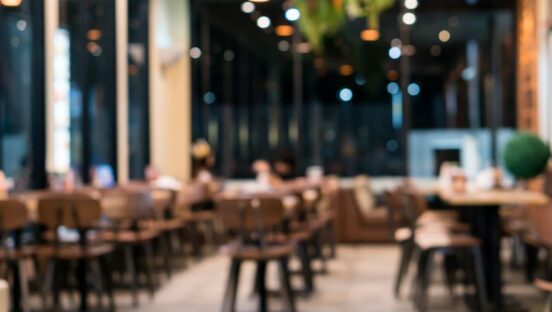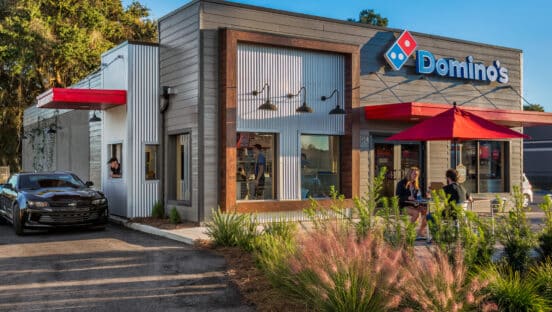In nearly every scenario, how a restaurant responds to a positive COVID-19 test is up to restaurant. The vast majority of markets do not legally require operators to disclose if an employee gets sick.
In fact, the CDC outlined restaurants and other businesses “in most cases” do not need to shut down when a worker tests positive.
There really isn’t a lot of concrete guidance available. There are local and state codes and regulations in certain markets, like Massachusetts, which forces venues to shutter for at least 24 hours and disinfect the space per CED guidelines—a rule that extents to patrons and vendors getting sick, too. But this kind of direct mandate is more the exception than the rule.
Meanwhile, as Larry Lynch, the National Restaurant Association’s senior vice president of Certification & Operations, said in a recent article, it’s highly likely restaurants, bars, and other hospitality establishments will experience at least one or more of their employees contracting COVID-19.
His advice: Just because you might not have to take action isn’t an invitation to be complacent.
“If the sick employee comes into work, send them home immediately—before they come into contact with anyone—and have them see a doctor,” he said in the story. “If they’re sick enough to get tested and it comes back positive, contact your local health department to help them do a contact trace to minimize the risk of the employee’s exposure to others.”
The stakes are high. Not necessarily just because of the health risk, either. Word-of-mouth is a freight train on social media. If a restaurant isn’t transparent with employees and customers, somebody else will be. And most operators agree they’d rather get ahead of the message than let Twitter hold the mega-phone.
“It is vital to show your support and concern for all of your staff’s safety and health during this unpredictable time,” Rewards Network said. “Whether it’s mandated by your local government, or just the right thing to do, we encourage you and your teams to adopt a series of cleaning and safety measures to keep your staff and guests as safe as possible.”
SOME TIPS ON TESTING, FROM A FAST CASUAL COO
As much as restaurants want to stay open and avoid closing again, they also can’t afford to turn public sentiment in reverse. Additionally, COVID-19 is a one-to-one virus. There’s no evidence it spreads from food. In practice, closing for a single day to clean should take care of the problem as long as the infected employee is out of the restaurant.
And even a positive case can be spun to show how safe the restaurant is, Rewards Network said. “Assure your patrons that you’re taking all the necessary precautions to create a safe restaurant environment. Reiterate on your website, emails, and social media pages that this issue was uncovered because you are regularly and diligently monitoring your staff,” the company said.
“We found out because we’re so keyed in,” can go a long way. A rogue, unnoticed positive case, meanwhile, would be a harsher reality and scarier for a lot of guests.
It’s always preferable to limit the invisible enemies in the room.
The Association’s Restaurant Law Center issued extensive guidance on what to do if an employee has COVID-19.
Follow these steps:
Employees Who are Sick
- Make sure that employees know they should not come to work if they are sick and should notify their manager or other designated COVID-19 point of contact.
- If an employee becomes sick while at work with COVID-19 symptoms, test positive for COVID-19, or have been exposed to someone with COVID-19 or have been exposed to someone with COVID-19 symptoms or a confirmed or suspected case, the employee should notify her/his supervisor or other designated COVID-19 point of contact.
WHAT SYMPTOMS SHOULD YOU LOOK FOR?
Employees with COVID-19 Symptoms at Work
- Immediately separate employees with COVID-19 symptoms (i.e., fever, cough, shortness of breath). Individuals who are sick should go home or to a healthcare facility, depending on how severe their symptoms are, and follow CDC guidance for caring for oneself and others who are sick. Employees should not return to work until the criteria to discontinue home isolation are met, in consultation with healthcare providers.
COVID-19 Exposed Employees with No Symptoms
Critical Infrastructure workers who have had an exposure but remain asymptomatic could be asked to stay home until 14 days after the last exposure or allow them to return to work with the following precautions:
- Take employee’s temperature and assess symptoms prior to starting work;
- If the employee doesn’t have a temperature or symptoms, they should still self-monitor throughout the day;
- If an employee becomes sick during the day, send them home immediately;
- Have them wear a face mask while in the workplace;
- The employee should maintain 6 feet and practice social distancing as work duties permit in the workplace; and,
- Consider increasing the frequency of cleaning commonly touched surfaces.
Contact Tracing Employees Exposed to COVID-19
- Contact trace within your operation to determine potential exposure. You may ask an employee that tested positive for COVID-19 which coworkers he/she had been in “close contact” with in the prior 2 weeks (definition within 6 feet for more than 15 minutes) or check shift schedules.
Notify Health Officials and Close Contacts
- In accordance with state and local laws, restaurant operators should notify local health officials and staff of any case of COVID-19 among employees, while maintaining confidentiality in accordance with the Americans with Disabilities Act (ADA).
WHAT ARE YOUR LOCAL GUIDELINES?
- Advise those who have had close contact with a person diagnosed with COVID19 to stay home and self-monitor for symptoms, and follow CDC guidance if symptoms develop. As critical infrastructure, you may also allow COVID-19 exposed employees with no symptoms to return to work with the precautions outlined above, also found in the CDC Guidance for Critical Infrastructure Workers.
Clean and Disinfect
- Close off areas used by a sick person and do not use these areas until after cleaning and disinfecting them.
WHAT TO KNOW ABOUT CLEANING AND DISINFECTING
- Wait at least 24 hours before cleaning and disinfecting. If 24 hours is not feasible, wait as long as possible. Ensure safe and correct use and storage of cleaning and disinfection products.
Returning to Work
You may ask for a “fitness for duty/return to work” medical clearance note prior to a sick employee returning for work. Some jurisdictions, like New York, do not allow employers to ask for such a note from asymptomatic employees.













